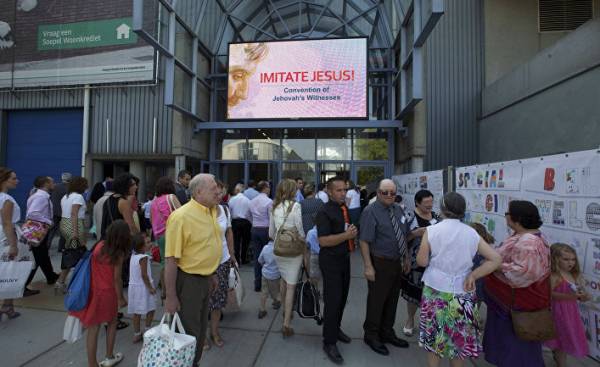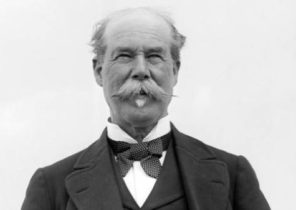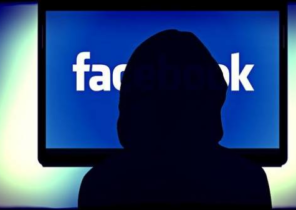
When Thursday, April 20, Russia’s Supreme court banned the activities of “Jehovah’s Witnesses”* and ordered the confiscation of the property of this organization, it happened not for the first time. This sect was outlawed in the Soviet Union until its collapse. Of course, her stubborn followers will continue to fight in courts, but these courts became another reminder that Russia President Vladimir Putin is in many ways a less free country compared to the USSR.
“Jehovah’s witnesses” is a global religious organization founded in the United States. Its adherents are quite often subjected to harassment from authoritarian governments because they don’t believe in the power of the state. They do not take part in elections, serve in army and not worship leaders. Even when Germany came to power the Nazis, Jehovah’s witnesses refused to use the Nazi salute, because, according to Yi beliefs, it is a manifestation of idolatry. In response, Hitler sent more than 10 thousand “Bible scholars” (that’s what they were called) in prisons and concentration camps, where their pacifism was particularly pleased with their tormentors.
Immediately after the Second world war in the Soviet Union, Jehovah’s witnesses were mainly concentrated in Western Ukraine and Transcarpathia. They had the misfortune to change persecution by the Nazis for no less brutal persecution of the Stalinist regime. In two covert operations in the late 1940’s and early 1950-ies the members of this sect were sent to Siberian camps. Then there were only about 10 thousand. However, they have not ceased to practice their faith in exile and the camps. And when, after Stalin’s death, authorities stopped systematically put them in prison and switched to the tactics of pursuit, the number of witnesses began to grow.
By January 1991, when the government of Mikhail Gorbachev officially permitted the activities of this organization in the Soviet Union was about 45 thousand of its followers. They were one of the most stubborn and resourceful of the resistance groups that has ever existed in this Communist country. Baran Emily (Emily Baran) writes about them in his book 2014, dedicated to the “Jehovah’s Witnesses” in the Soviet Union:
They have created an extremely complex underground organization with its own Treasury, management structure and internal reporting system, through which they conducted a thorough accounting of the archives of their members. While dissidents from the intelligentsia kept great care by sharing your views with other people who could make them understand that Jehovah’s witnesses openly talked about their beliefs with complete strangers in an attempt to convert them to their faith.
1990-ies were a period of unprecedented freedom for “Jehovah’s Witnesses” in Russia. They managed to attract about 100 thousand of new members, gain influence, and in some cities, even very expensive real estate. But in the early 2000-ies, after Putin came to power, the persecution began with new force: the courts began to prohibit the activities of the regional offices of “Jehovah’s Witnesses” and their literature. To do it became much easier after the adoption of the “anti-extremist laws” which forbid to preach the superiority of one religion over another. And literature of “Jehovah’s Witnesses” fell under the ban: they not only considered their faith the only true one and they are still proud of her preaching.
“Jehovah’s witnesses” challenged the verdicts of the courts, often reach the European court of human rights and even won a victory there. However, during third presidential term Putin, the Russian courts have very often to ignore the decisions of the European court of human rights. Despite the fact that the European court will probably annul the decision of the Supreme court of Russia, if “Jehovah’s Witnesses” will bring the case to Strasbourg, the Russian government is likely to insist that the ban, initiated by the Ministry of justice. A next step could be the pursuit of individual members of this sect for what they continue to preach their faith.
In many ways, “Jehovah’s Witnesses” — a very radical organization, although they preached the principle of non-violence is hardly extremist. That is why their fate can be considered a test of the degree of religious freedom: the more liberal and tolerant is the country, the tougher its authorities treat members of this sect.
Western democracy was able to take the “Jehovah’s Witnesses”. In different periods of the members of this sect have faced bans in France, Spain and Canada — mainly due to their views on military service and their relationship to the flags. But lately, after prolonged litigation, the European countries have recognized their right to their own religious beliefs. The European Union condemned the ban imposed in Russia.
On the other side of the spectrum of African dictatorial regimes have killed, tortured and expelled “Jehovah’s Witnesses”. Several Muslim countries and China have banned the activities of the organization in their territories. Russia is also gradually moving in this direction, and it does not Bode well for the other Protestant sects and smaller religious groups. Like Western NGOs and media representatives, who were expelled from Russia over the past four years, these groups constitute the so-called fifth column. They may not reject the state so openly, as do the “Jehovah’s Witnesses”, however, Putin and his associates they still appear to be insufficiently loyal because of their unwillingness to profess those religions whose leaders maintain relations with the authorities and amenable to control.
Russia no longer wants to adhere to the principles of openness and tolerance. The Putin regime is not too concerned that he can think of other countries in this regard. In a sense, it demonstrates exactly the same recalcitrance and intransigence as “Jehovah’s Witnesses” — and the same vitality. However, “Jehovah’s Witnesses” demonstrated its viability for a much longer time.
* The activities of the “administrative center of Jehovah’s Witnesses in Russia” recognized by the Supreme court of the Russian Federation extremist







